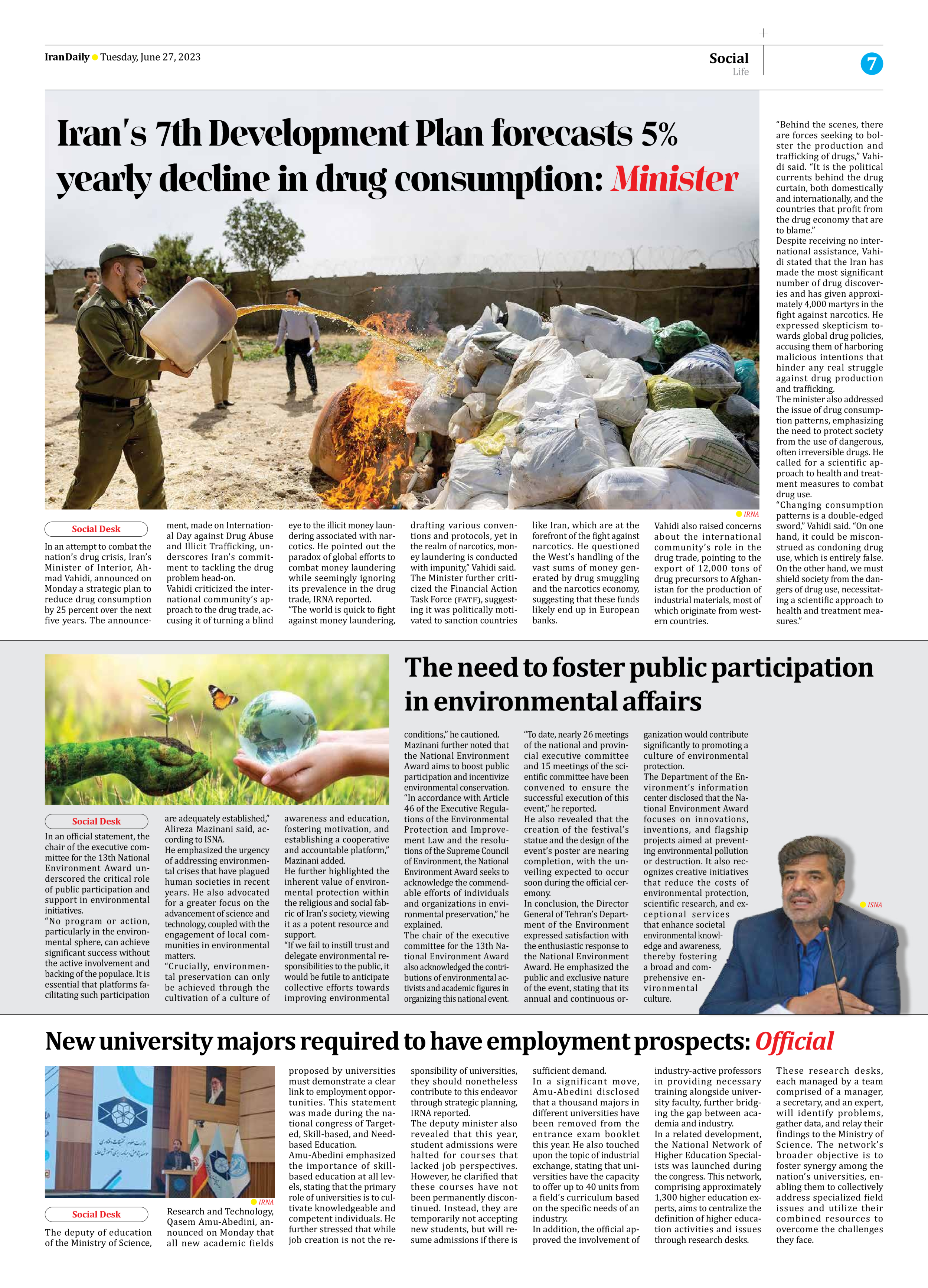
New university majors required to have employment prospects: Official
The deputy of education of the Ministry of Science, Research and Technology, Qasem Amu-Abedini, announced on Monday that all new academic fields proposed by universities must demonstrate a clear link to employment opportunities. This statement was made during the national congress of Targeted, Skill-based, and Need-based Education.
Amu-Abedini emphasized the importance of skill-based education at all levels, stating that the primary role of universities is to cultivate knowledgeable and competent individuals. He further stressed that while job creation is not the responsibility of universities, they should nonetheless contribute to this endeavor through strategic planning, IRNA reported.
The deputy minister also revealed that this year, student admissions were halted for courses that lacked job perspectives. However, he clarified that these courses have not been permanently discontinued. Instead, they are temporarily not accepting new students, but will resume admissions if there is sufficient demand.
In a significant move, Amu-Abedini disclosed that a thousand majors in different universities have been removed from the entrance exam booklet this year. He also touched upon the topic of industrial exchange, stating that universities have the capacity to offer up to 40 units from a field’s curriculum based on the specific needs of an industry.
In addition, the official approved the involvement of industry-active professors in providing necessary training alongside university faculty, further bridging the gap between academia and industry.
In a related development, the National Network of Higher Education Specialists was launched during the congress. This network, comprising approximately 1,300 higher education experts, aims to centralize the definition of higher education activities and issues through research desks.
These research desks, each managed by a team comprised of a manager, a secretary, and an expert, will identify problems, gather data, and relay their findings to the Ministry of Science. The network’s broader objective is to foster synergy among the nation’s universities, enabling them to collectively address specialized field issues and utilize their combined resources to overcome the challenges they face.







